Local SEO Keywords: What they are and examples
Imagine potential customers in your area searching online for the exact services you offer.
Are they finding your business or turning to competitors?
Mastering local SEO keywords ensures you’re the top choice in local searches, driving more traffic and boosting your revenue.
Dive into this article to discover how to harness the power of local SEO and make your business the go-to option in your community.
What are Local SEO Keywords?
Local SEO keywords are specific search terms that individuals use when seeking products, services, or information within a particular geographic area.
These keywords typically combine a service or product with a location modifier, such as “plumber in Dallas” or “best coffee shop in Seattle.”
By incorporating these localized keywords into your website’s content, meta descriptions, and titles, you enhance your business’s visibility in local search results, making it easier for potential customers in your vicinity to find and engage with your offerings.
How to find and use them effectively
Effectively identifying and utilizing local SEO keywords is crucial for enhancing your business’s visibility in local search results.
Here’s how you can achieve this:
1. Conduct localized keyword research
Begin by pinpointing keywords that potential customers in your area are using to find services or products similar to yours.
This involves combining your core offerings with location-specific terms. For example, a bakery in Austin might target “Austin artisan bakery” or “best cupcakes in Austin“.
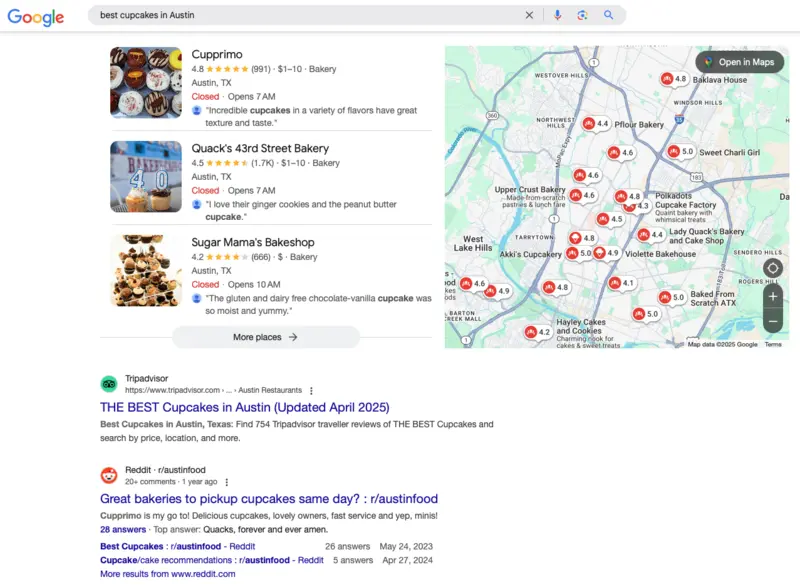
Use tools like DinoRANK to discover relevant keywords and assess their search volumes.
2. Analyze competitor strategies
Examine the keywords your local competitors are targeting.
Here, DinoRANK also has a lot to say: thanks to the comparison table of its local SEO function, you can click on the eye symbol and investigate the ranking of your competitors for locations within your city.
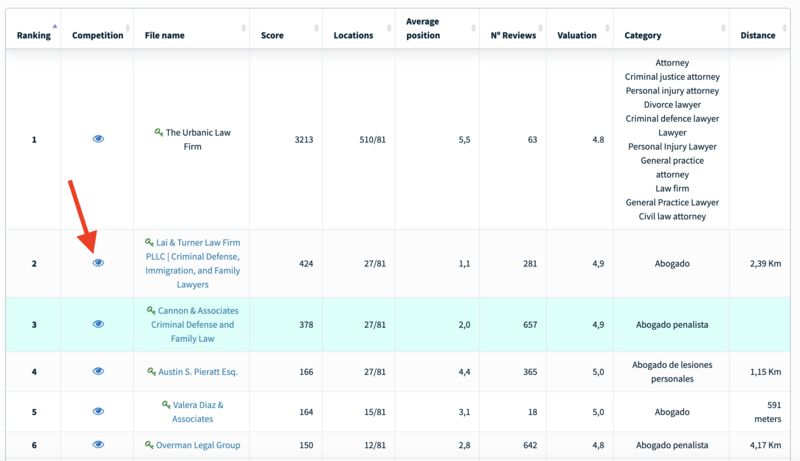
3. Incorporate keywords naturally
Once you’ve identified pertinent local keywords, integrate them seamlessly into your website’s content, meta descriptions, titles, and headers.
Ensure the content remains engaging and informative, avoiding keyword stuffing, which can negatively impact user experience and search rankings.
4. Optimize for mobile users
With the rise in mobile searches, especially those with local intent, it’s vital to ensure your website is mobile-friendly.
A responsive design and fast loading times enhance user experience and improve your site’s ranking in mobile search results.
5. Leverage local business listings
Claim and optimize your business profiles on platforms like Google My Business and Yelp.
Consistent NAP (Name, Address, Phone number) information across these listings reinforces your business’s credibility and aids in local SEO efforts.
By implementing these strategies, you can effectively harness local SEO keywords to attract and engage customers within your community, thereby driving growth and establishing a robust local presence.
Best tools for Local Keyword research
Effective local keyword research is pivotal for businesses aiming to enhance their visibility in specific geographic areas.
Utilizing specialized tools can streamline this process, providing insights into search behaviors within targeted locales. Here are some top tools to consider:
1. DinoRANK
DinoRANK is an all-in-one SEO platform that is very comprehensive and offers quite a few features for local keyword research.
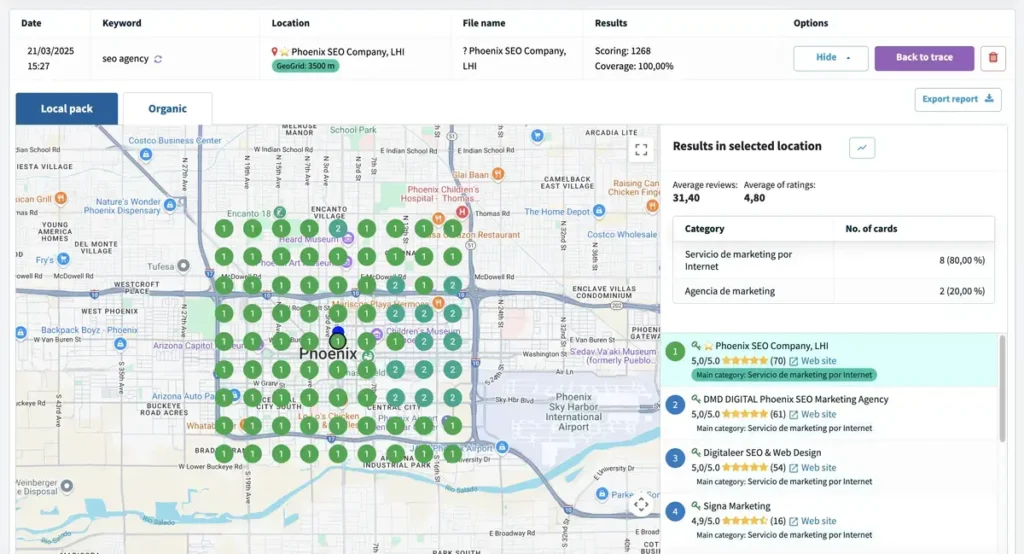
Specifically, it has a local SEO module, where you can find out what is the organic positioning in Google Maps of your Google Business Profile listing, based on these data:
- The main keyword of your business.
- The location of the physical location
- The name of your business (of your listing)
With this information you can extract in which places you are better positioned, within your city and also know how many reviews your competitors have and how well (or poorly) positioned they are.
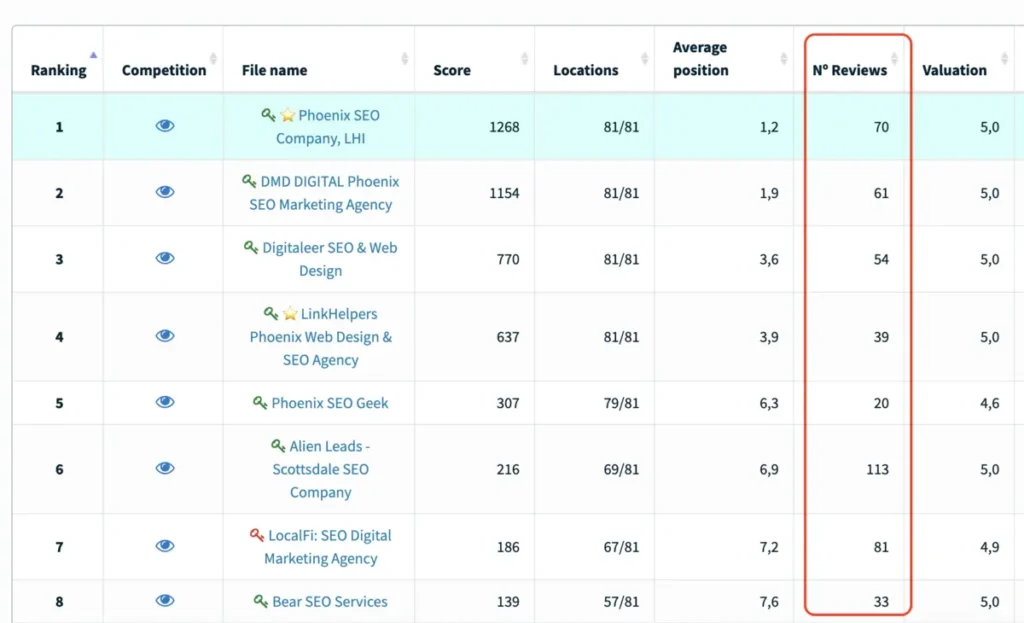
2. Google Keyword Planner
Integrated within Google Ads, Google’s Keyword Planner provides valuable insights into keyword search volumes and forecasts.
By entering a keyword and specifying a location, you can discover how often certain terms are searched in that area, aiding in the selection of relevant local keywords.
This tool is particularly useful for identifying location-specific search trends and planning your content strategy accordingly.
3. WordStream’s Free Keyword Tool
WordStream offers a keyword analysis tool, where you can select your industry and country, you will receive a list of related keywords including long tail variations.
This tool is very useful for discovering local keywords that might not be obvious at first glance, allowing you to expand your reach in specific regions.
4. SpyFu
SpyFu specializes in competitive analysis, enabling you to see the keywords your competitors are targeting.

By understanding which keywords are driving traffic to similar businesses in your area, you can refine your own keyword strategy to capture a share of that audience.
This insight is invaluable for staying competitive in local markets.
5. Google Trends
Google Trends allows you to analyze the popularity of search terms over time and across different regions.
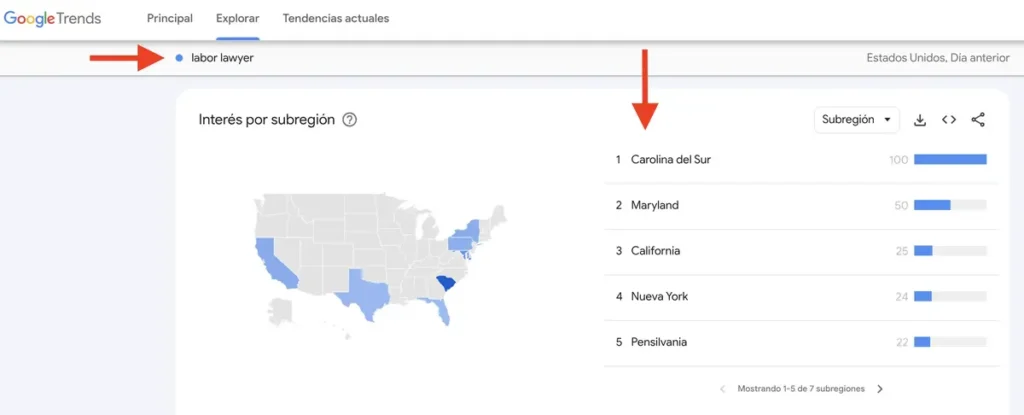
By comparing multiple keywords, you can identify which terms are gaining traction in specific locations, helping you to tailor your content to current local interests.
This tool is particularly useful for staying ahead of emerging trends in your area.
By leveraging these tools, you can conduct thorough local keyword research, ensuring your business resonates with the search behaviors of your target audience in specific geographic areas.
Analyzing local search volume
Understanding and analyzing local search volume is essential for businesses aiming to optimize their online presence within specific geographic regions.
Here’s how you can effectively assess local search volume:
1. Utilize specialized Keyword research tools
Several tools are designed to provide insights into local search volumes:
- KWFinder by Mangools: this tool allows users to input keywords and specify locations, delivering localized search volume data along with other metrics.
- Google Trends: Google Trends enables analysis of the popularity of search queries across various regions and languages, offering insights into relative search volumes over time.
2. Interpret the data
When analyzing local search volume data, consider the following:
- Search Volume Trends: identify patterns or fluctuations in search volume over time to understand seasonal trends or emerging interests.
- Keyword Difficulty: assess the competitiveness of each keyword to determine the effort required to achieve high rankings.
- User Intent: ensure the keywords align with the services or products you offer and match the intent of potential customers.
By effectively analyzing local search volume, you can tailor your SEO strategies to meet the specific needs and behaviors of your target audience, thereby enhancing your local online visibility and driving more relevant traffic to your business.


